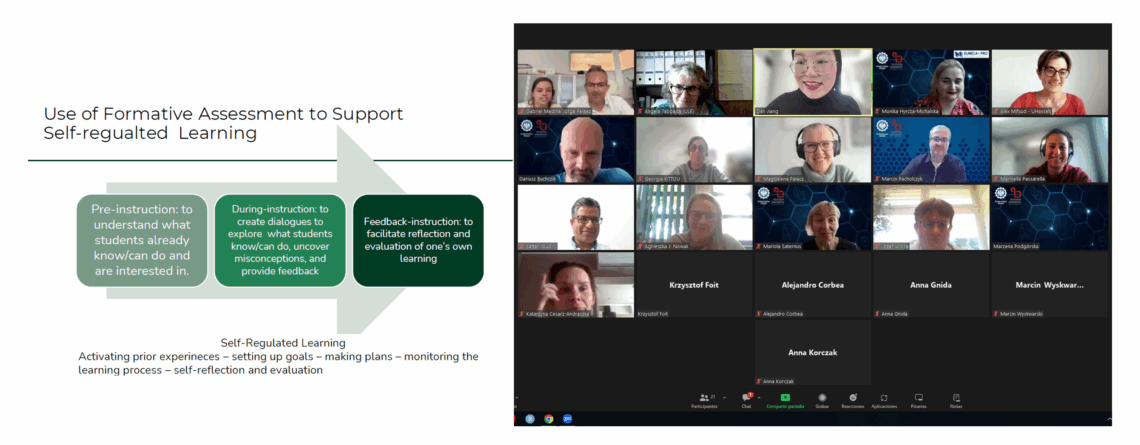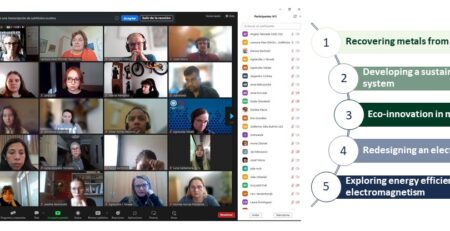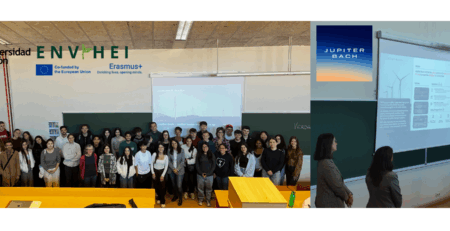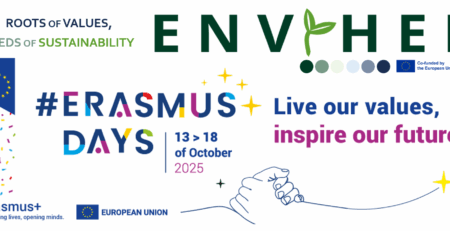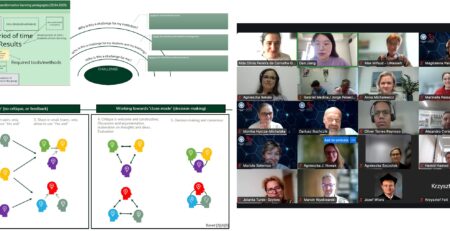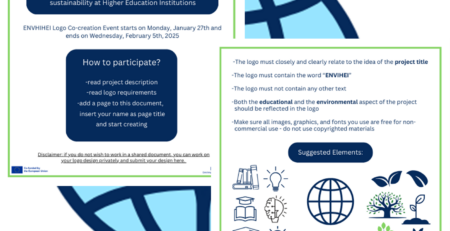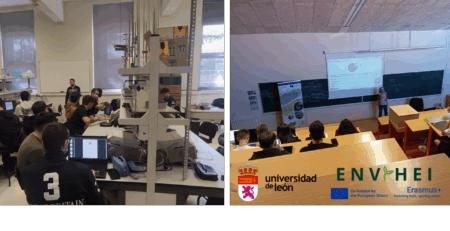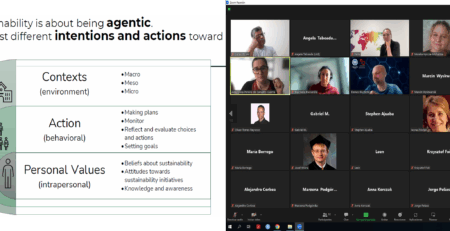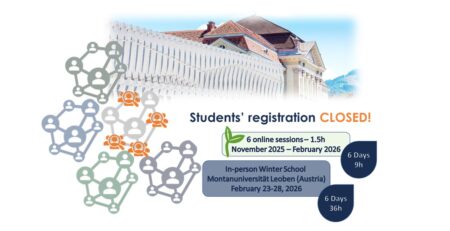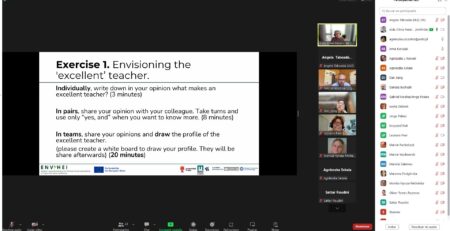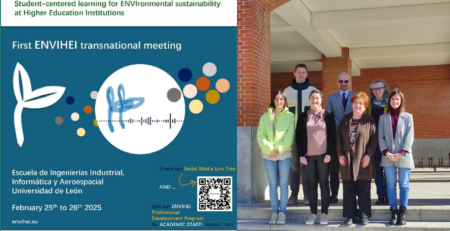In May 2025, the ENVIHEI Project continued its mission to support transformative education for environmental sustainability with two insightful online workshops, namely, Workshop 6: Facilitation Skills and Collaboration and Workshop 7: Assessment and Evaluation. Led by internationally recognized education experts Aida Guerra, Dan Jiang, and Alex Mifsud, the sessions brought together higher education educators eager to enhance their pedagogical approaches with student-centered, problem-oriented, and sustainability-aligned practices.
Workshop 6 focused on the role of facilitation in student-centered learning. Participants reflected on the differences between traditional knowledge transmission and the active facilitation of learning, highlighting how the latter fosters deeper understanding, engagement, and critical thinking. Through discussions and breakout sessions, educators explored different facilitation styles such as product; process; control; and laissez-faire, and how these can be strategically adapted to various learning objectives. Emphasis was placed on how facilitation can promote dialogue-based learning and green competences, empowering students to actively participate in solving real-world environmental challenges.
Participants also engaged with tools and strategies to enhance facilitation practices, such as using constructive feedback models like Observation–Effect–Suggestion (OES), creating inclusive learning spaces, and adapting questions to guide reflection and collaboration. These discussions underscored the importance of facilitation not just as a teaching method, but as a means to enable transformative and sustainability-focused education.
Workshop 7 built on the pedagogical foundation laid in Workshop 4 (Curriculum and Course Design), turning attention to assessment and evaluation. Participants were invited to consider a comprehensive view of assessment by exploring its different purposes (formative, summative, diagnostic), formats (exams, portfolios, peer reviews), and types (assessment of, for, as, and before learning).
Through reflective exercises and pair discussions, educators examined past and current practices and envisioned innovative methods for future implementation. A major focus was placed on aligning assessment with intended learning outcomes and using rubrics to support student learning and development. The sessions also emphasized how assessment can serve as a tool for student empowerment, encouraging self-reflection, goal setting, and ownership of the learning process which are key elements of education for sustainability.
Together, these two workshops equipped educators with the skills and perspectives needed to create learning environments that are not only student-centered and collaborative but also purposefully designed to foster the development of sustainability competencies in higher education.
As part of the ENVIHEI project’s broader goal, these sessions contribute to reshaping teaching practices that meet the pressing demands of environmental challenges, one workshop at a time.
Interested in attending the next sessions of our Professional Development Program? Learn more and register here: https://envihei.eu/professional-development-program/
Stay connected with us through our website and social media channels for the latest updates!
Discover more from ENVIHEI - Student-centered learning for ENVIronmental sustainability at Higher Education Institutions
Subscribe to get the latest posts sent to your email.

